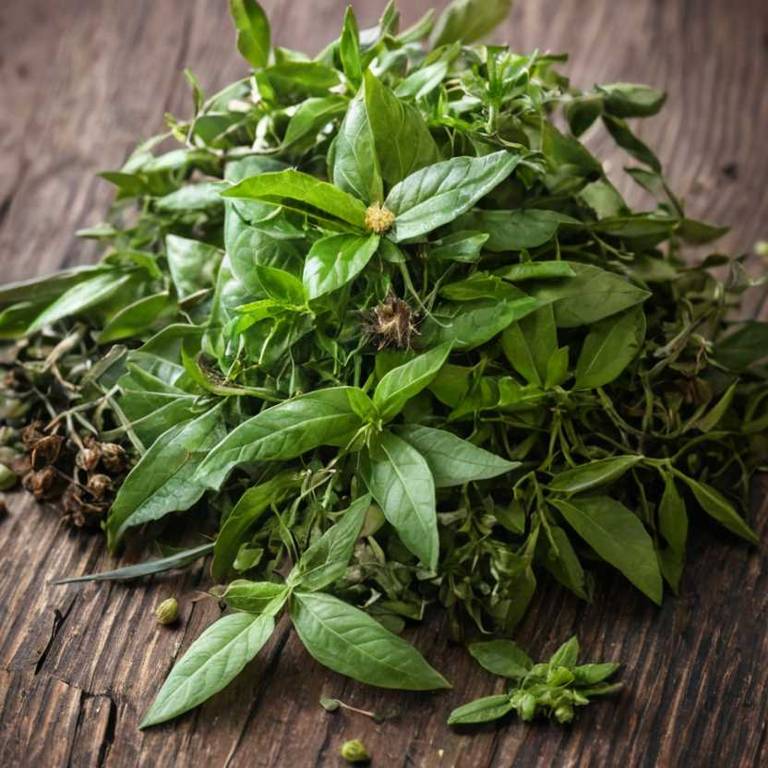By Leen Randell
Updated: Jul 05, 2024
What Are The Medicinal Properties Of Camellia Sinensis (Tea)?

Camellia sinensis, also known as tea, has health benefits such as reducing inflammation and improving cardiovascular health.
The medicinal constituents of tea include flavonoids, catechins, and theaflavins, which have antioxidant and anti-inflammatory properties. These compounds can be found in various medicinal preparations, including infusions, decoctions, and extracts. However, high doses of tea can cause gastrointestinal side effects, such as diarrhea and stomach discomfort.
Precautions include consulting a healthcare professional before using tea for medicinal purposes, especially for individuals with certain medical conditions.
This article explains the health benefits, active constituents, medicinal preparations, possible side effects, and precautions related to Camellia sinensis.
What are the health benefits of Camellia sinensis?
Camellia sinensis, also known as tea, has health benefits such as reducing the risk of heart disease and stroke, thanks to its high levels of antioxidants and polyphenols.
Regular tea consumption has been linked to improved cardiovascular health, and may also help to lower cholesterol levels and blood pressure.
Additionally, tea has anti-inflammatory properties, which may aid in reducing the risk of certain cancers and other chronic diseases.
Here's a detailed article about the 10 health benefits of Camellia sinensis.
What are the active constituents of Camellia sinensis?
Camellia sinensis, also known as tea, has active constituents such as flavonoids, particularly quercetin and kaempferol, which possess anti-inflammatory and antioxidant properties.
Catechins, particularly epigallocatechin gallate (EGCG), are also present, exhibiting antioxidant and anti-cancer effects. Other compounds like theaflavins and thearubigins, formed during tea fermentation, contribute to its health benefits, including reducing cardiovascular risk and improving cognitive function.
These constituents contribute to tea's potential health benefits.
Here's a detailed article about the 10 active constituents of Camellia sinensis.
What are the medicinal preparations of Camellia sinensis?
Camellia sinensis, also known as tea, has medicinal preparations such as green tea, black tea, and white tea, which are rich in antioxidants and flavonoids.
These teas have been traditionally used to reduce inflammation, improve cardiovascular health, and boost antioxidant levels.
Theaflavins and thearubigins in black tea, for example, have been shown to have anti-cancer properties and may help protect against age-related diseases.
Here's a detailed article about the 10 medicinal preparations of Camellia sinensis.
What are the possible side effect of using Camellia sinensis improperly?
Here's a detailed article about the 10 most common side effects of Camellia sinensis.
What precautions to take when using Camellia sinensis medicinally?
Before using Camellia sinensis, also known as tea, for medicinal purposes, you must take precautions such as consulting with a healthcare professional, especially if you have underlying health conditions or are taking medications.
Monitor your body's response to tea and adjust your dosage accordingly.
Be cautious with high-quality tea extracts, as they can be very concentrated and potentially interact with other substances.
Here's a detailed article about 10 precautions to take when using Camellia sinensis.